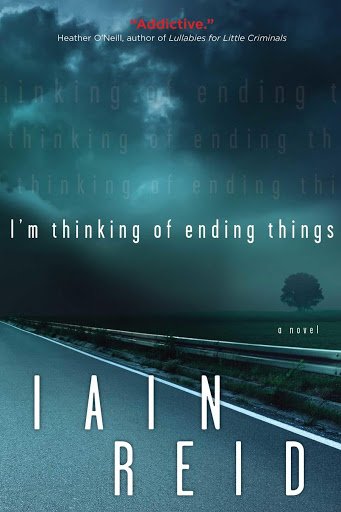I'm Thinking of Ending Things it is a film by Charlie Kaufman - an Oscar-winning screenwriter, who created texts for such paintings as: Being John Malkovich, Adaptation or In Love Without Memory. Those who know his work know that the artist specializes in unconventional visions. How is it this time?
I'm Thinking of Ending Things is one of those films that some viewers dismiss as unreadable, too abstract and confusing. It is a picture in which a linear plot gives way to surrealism, and the narratives create scenes out of context. This form discourages some viewers at the outset, and it is understandable, because not everyone has to find a film an intellectual conundrum or a puzzle with dozens of seemingly incompatible puzzles. Even though Thinking of Ending Things quite traditionally, it quickly turns into a journey deep into the psyche of the characters, and logic and common sense cease to exist. It is very hard to understand, but if we do, the abstract story is replaced by a heart-touching story of human torment. When we properly interpret screen events, the apparent mishmash not only becomes legible, but also triggers an emotional charge, against which the viewers become defenseless.
Therefore, I'm Thinking of Ending Things it should be reviewed not as a collection of illogical scenes, but a story about loneliness, missed opportunities, humiliation, unfulfilling and past mistakes. The movie begins quite classic. Jake and Lucy leave the big city and travel to rural America to meet the man's parents. They reach a farm where reality begins to blur. Lucy and I travel back in time, moving to the next moments in the lives of Jake and his parents. Soon Lucy also loses her identity. She becomes nameless and unreal. Only a certain old janitor seems to be real, whom we have the opportunity to watch in the digressions separating the main plot. With time, it turns out that the story we are watching is a story about this man's life. Old, lonely and utterly unhappy. A man who in his youth was too conservative and not determined enough to change his life, leave his family home and fight for his own fate.
An older man working at the school as a janitor, at the edge of his life, goes back to the times when everything was still possible. His memories, however, are not clear and legible. A tired and ailing mind mixes dreams with real events. As a young man, Jake missed his chance for love. Now he creates it in his memories. What if he took the number from this beautiful girl after all? Would they find happiness together? Or maybe she, after a few weeks, would decide that it was time to quit, because Jake is not good enough to be a life partner?
Charlie Kaufman goes very deeply into the psyche of a lonely and unhappy individual, but the reflections coming from the film may belong to each of us. This is the strength of Kaufman's production - the universality of the message strikes every viewer. Following Jake's fate, we remember our unused opportunities and moments that we remember over time. Chekhov's Shotguns appearing throughout the film fire at the right moments, but with a perverse effect. The basement on the farm owned by the main character's parents does not hide a sinister secret, and is the place where Jake hid his sensitivity. All his life, despised by the young and the beautiful, the protagonist at the end of his life works as a janitor in high school, among teenagers who mock him at every step. The originally incomprehensible poem about returning home takes on a new, terrifyingly sad meaning in the last act.
Of course, it is not a movie for everyone. Paradoxically, it is worth viewing the painting, being aware of what is hidden under the metaphor. Knowing the plot's direction, it will be easier to spot the clues and read allegories. Charlie Kaufman's painting should be treated as a cinematic poem which, despite its personal character, has a universal overtone. Appropriate interpretation can enrich us, sensitize us and teach us a lot. If, however, we fail to catch what is most important, the work (like misunderstood poems) will become a cluster of words hitting the void. Kaufman's painting absolutely does not deserve such a fate.
